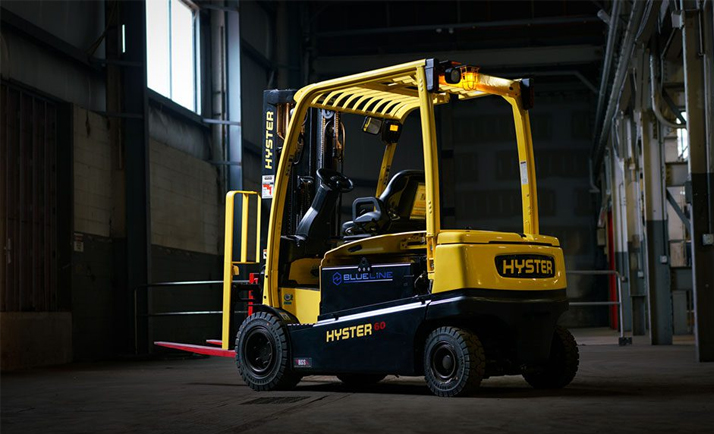New technology brings clean power to industrial forklifts
Blue Line Battery develops lithium-ion batteries for forklifts that serve as an alternative to traditional lead-acid batteries.
Blue Line Battery embraces lithium-ion
Dustin Herte is a tinkerer. “He’s like Doc Brown from the ‘Back to the Future’ movies,” says Phil Fonfara, president of Blue Line Battery Inc., in Beloit. Herte, a Milwaukee area native and graduate of the Milwaukee School of Engineering, had founded Odyssey Trikes, an electric tricycle company, in West Bend in 2015. Herte was designing lithium-ion batteries for the bikes and began researching other needs for the technology.
He discovered that forklifts used in manufacturing plants primarily use giant lead-acid batteries. While those systems are rechargeable, their sulfuric acid and lead are highly hazardous substances. So, Herte began tinkering and made it his mission to develop a lithium-ion battery to serve as an alternative.
QNBV draws angel investors
A $220,000 loan from Whitewater’s Community Development Authority—funded through WEDC’s Capital Catalyst program—persuaded Herte to move his custom battery business to Whitewater in 2017. By then, the company had changed its focus to forklifts and its name to Blue Line Battery.
But it was difficult to raise money to grow the business; venture capitalists tend to shy away from hardware companies until they become profitable, Fonfara says. When Blue Line did manage to secure commitments for its first $1.5 million, it was March 2020. The funding round closed “the week the world was shutting down” due to COVID-19, Fonfara says. Several investors backed out, taking with them more than half of the funding round.
It took nine months to get back to the $1.5 million, and that infusion was enough to give Blue Line’s products momentum. Angel investors throughout Wisconsin stepped in, ultimately raising another $4.2 million. Their motivation, on top of hopes for the company’s success, was WEDC’s Qualified New Business Venture (QNBV) Program that provides state tax credits to residents who invest in promising startups. “WEDC has really given our company a chance. Blue Line Battery would likely not exist if it were not for WEDC’s QNBV Program,” Fonfara says.


